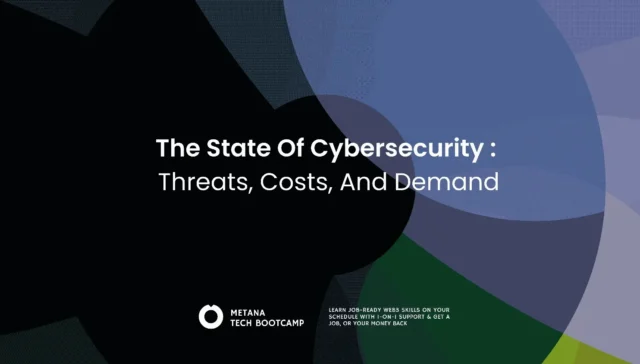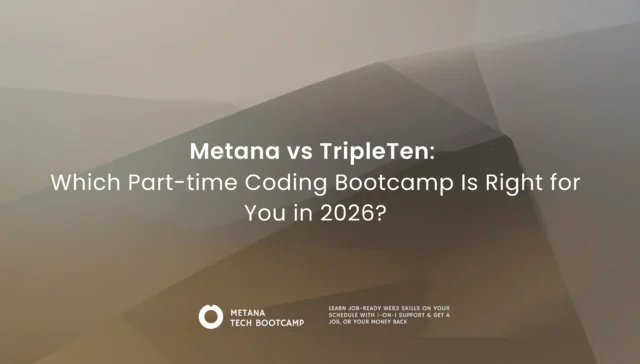TL;DR:
Smart contracts are self-executing agreements written in code that automatically execute when certain conditions are met. They function on blockchain technology, removing the need for a middleman, as the terms are directly embedded in the code. Understanding how smart contracts work reveals how they securely and automatically enforce agreements without human intervention.
What is a Smart Contract?
A smart contract is a self-executing digital agreement that lives on a blockchain. Think of it like a vending machine for transactions: once the right input is provided, such as money, data, or an action, the contract automatically delivers the agreed outcome without needing human involvement.
It replaces the need for middlemen like banks or lawyers by using transparent, tamper-proof code that runs exactly as programmed. Once deployed, it can’t be changed, making it a secure and trustworthy way to handle agreements online. In smart contracts, these conditions and actions are written in code, and once the conditions are met, the contract automatically executes without anyone needing to do anything manually.
How Does It Actually Work?
Here’s a step-by-step breakdown of how a smart contract works:
Agreement Made Between Two Parties
Two parties (Party A and Party B) decide to enter into an agreement. For instance, one party may agree to send a payment once the other party provides a service. Instead of using a third party to monitor this, they write down their agreement in a smart contract.
Smart Contract Code Is Created
The terms of the agreement (conditions and actions) are written in computer code by the parties. This code is stored on a blockchain, a digital ledger where all transactions are recorded. The smart contract is self-executing, meaning it will automatically trigger once the conditions are met.
Execution Happens Automatically
Once the specified conditions are met, the smart contract is automatically triggered. For instance, once the service is provided, Party A’s payment will be automatically sent to Party B.
Blockchain Verifies Everything
The blockchain acts as a secure, transparent, and immutable record. It verifies the transaction, ensuring that once the conditions are met, the contract is executed, and the action cannot be undone or tampered with. This makes it highly secure.
Real-World Example: Renting an Apartment with a Smart Contract
Step 1: Agreement is Written
You and the landlord agree:
“If you pay 1 ETH (a type of cryptocurrency), you get the digital key to access the apartment.”
This rule is written into the smart contract and uploaded to the blockchain.
Step 2: It’s Live on the Blockchain
Once uploaded, the contract is stored publicly and securely. No one can change it, not even the landlord. It’s like carving the rules into a digital stone.
Step 3: You Take Action
You send 1 ETH to the smart contract. It sees that you followed the rule (condition is met).
Step 4: Automatic Execution
The contract instantly sends you the digital key (or unlocks the smart lock on the door).
No landlord approval needed. It’s all automatic and trustless.
Step 5: Permanent Record
The whole process is recorded forever on the blockchain. It’s visible to anyone and can’t be changed. This makes it secure and tamper-proof.
Why Are Smart Contracts Important?
Smart contracts remove the need for a trusted third party, which is a major benefit across various industries. They fundamentally change the way agreements are made and enforced, offering a faster, cheaper, and more secure alternative to traditional methods.
Here’s why smart contracts matter so much:
Efficiency
- Transactions are automated, reducing the time and administrative costs associated with traditional contracts.
- Because there’s no need for intermediaries like lawyers, brokers, or banks, processes that once took days or weeks can now happen in seconds or minutes.
- Smart contracts also reduce human error and delays that often come with manual processing.
Security
- Smart contracts use blockchain technology, which makes transactions highly secure and resistant to tampering or hacking.
- Every action taken by the contract is recorded immutably on the blockchain, providing a permanent and verifiable audit trail.
- The decentralized nature of blockchain reduces the risk of a single point of failure.
Transparency
- Because smart contracts are stored publicly on the blockchain, anyone with permission can view the terms and the execution history.
- This full visibility builds trust among parties and removes the possibility of hidden clauses, manipulation, or misinterpretation.
- It also makes disputes easier to resolve, since all records are publicly verifiable.
Trust
- In traditional contracts, trust relies heavily on the integrity of intermediaries or counter-parties.
- With smart contracts, trust is placed in the technology — the code executes actions only if the agreed-upon conditions are fulfilled, leaving no room for bias or deception.
- Parties who have never met can do business confidently without fear of fraud.
Cost Savings
- Eliminating middlemen like banks, legal advisors, and notaries significantly lowers transaction costs.
- Smart contracts reduce overheads related to dispute resolution, contract management, and enforcement.
Accuracy
- Since contracts are executed automatically based on exact inputs, there is less room for manual errors compared to paper-based or manually-enforced contracts.
- Every step is precisely carried out according to the coded instructions.
Global Accessibility
- Smart contracts aren’t bound by national borders — anyone with internet access and a crypto wallet can participate.
- This opens up opportunities for businesses and individuals in underserved regions, reducing barriers to global trade and financial inclusion.
Innovation and New Business Models
- They allow startups and industries to create more dynamic, user-driven systems that were impossible under traditional centralized models..
- Smart contracts enable entirely new types of applications, like decentralized finance (DeFi), decentralized autonomous organizations (DAOs), NFTs, and blockchain-based supply chain tracking.
Conclusion
Smart contracts are more than just a buzzword. They represent a new way of handling agreements that’s faster, more secure, and more transparent than traditional methods. By eliminating the need for intermediaries and automating processes, they have the potential to transform industries such as real estate, supply chain management, and finance. As the world continues to shift toward decentralization, smart contracts will play a crucial role in shaping the future of business.
FAQs
Are smart contracts only used in blockchain?
- Yes, smart contracts work within the blockchain ecosystem because they rely on its decentralized and secure nature, and without blockchain, they wouldn’t function the same way.
Can smart contracts be changed once deployed?
- No, smart contracts are immutable once deployed on the blockchain, meaning no one can change them after they are put into place.
Do smart contracts need a middleman?
- No, one of the main benefits of smart contracts is that they eliminate the need for middlemen like banks, lawyers, or notaries, because the contract automatically enforces itself once conditions are met.
What happens if there’s an error in the smart contract?
- If there’s a mistake in the code, it could lead to unintended actions, which is why thorough testing and auditing are critical before deploying a smart contract.
Can smart contracts be used in any industry?
- Yes, smart contracts have wide applications across industries such as finance, real estate, insurance, supply chain management, and many more.
Are there any risks with using smart contracts?
- Yes, while they are secure, smart contracts can still have risks like bugs in the code or human errors when defining terms, so auditing and testing are essential.







